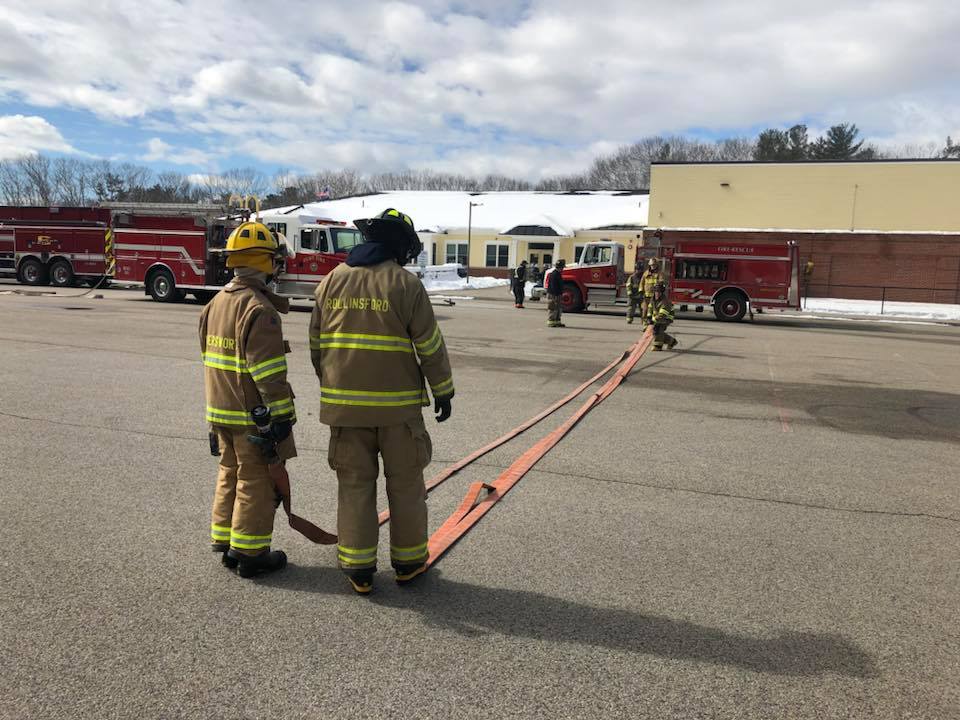Young recruits; What are we missing?

Is your fire department membership aging faster than it can recruit? For a lot of us, we have an increasingly aging membership. Although the wealth of knowledge offered by our senior members is invaluable, we need to be sure we have someone to pass that knowledge down to. It seems as though the number of young people coming into the volunteer and call fire service has shrunken considerably in the last few decades.
With the decrease in trade classes in high school and the increase in society telling us that we must go off to college and get a degree for a tech job, doctor’s job or to be a lawyer, etc., less kids are willing to get their hands dirty. Full disclosure here: I’m not saying ALL kids don’t want to get their hands dirty. There are plenty who do. You’re valuable, so keep doing what you’re doing.
Volunteer and on-call firefighting is a hands dirty kind of job that offers little pay, if any. However, it’s a critical calling to fill for every community. Where have we dropped the ball when it comes to attracting young men and women to volunteering for their community? I’m sure there are a lot of factors that go into this, but I have narrowed it down to a few.
- We might appear too exclusive. Face it, we as a department do a lot of things together. We train together, we do family functions together, we even mostly drive the same types of vehicles. The public may look at this as an exclusive organization that only certain types belong to. This isn’t necessarily viewed as a negative image, but certainly a something that may draw people away from joining. It’s time we start “diversifying” a little bit and showing that our doors are open to anybody who is interested in serving their community and belonging to something greater than themselves.
- People think we are paid, full time. If you have a good turnout at incidents, present yourselves in a professional manner and have good community relations, chances are your community members may not realize you’re a volunteer or call fire department. This obviously could deter younger people from joining right out of High School based simply on the fact they think they need to have their certifications and go through a complicated hiring process. If young people don’t know that we are a volunteer or on-call organization, it’s up to us to get that message out. Some public education through social media and public events would easily educate people about your organization.
- Fire prevention ends at an early age. Think about all of the young kids in our community. Every October we visit the schools and give a fire prevention lesson. Maybe our local scouts visit our station from time to time and we give them a tour of the building and trucks. These young kids are full of questions and excited to see what we do. Some may even have a dream to become a firefighter when they grow up. What we may not think about is these interactions stop at a certain age group. There’s a large gap between 5th grade and High School graduation. We should work on programs to keep our local children engaged in their local fire department.
- Kids these days don’t want to get their hands dirty. As I mentioned in the introduction, kids aren’t exposed to trades in school anymore and don’t want to get their hands dirty. Trade workers right now are in high demand. On the other side of the coin though, this younger generation want to make a difference in the world. Perhaps we should be what kind of a difference we can potentially make for our community in our recruitment tactics.
I am sure I could add more to this list, but these are some of the basic issues we should be addressing. We need to act quick to get our younger ranks boosted up before it’s too late. Try to remember what attracted you to the fire service when you were just getting done with high school. Who influenced you? What caught your eye?
This all comes down to one simple thing. We aren’t putting ourselves out there enough. We aren’t educating our young community members what we are all about. We need to start speaking with young adults, students and graduates on a consistent basis. If we create relationships throughout our community and let people know who we are and what we do, we may just start attracting more people to the table to become new members.